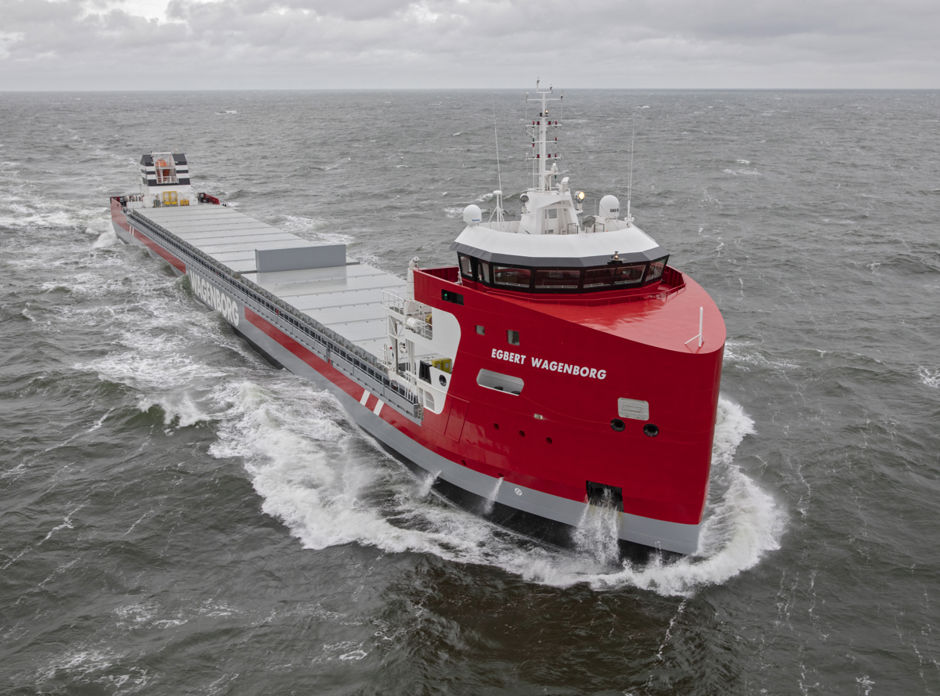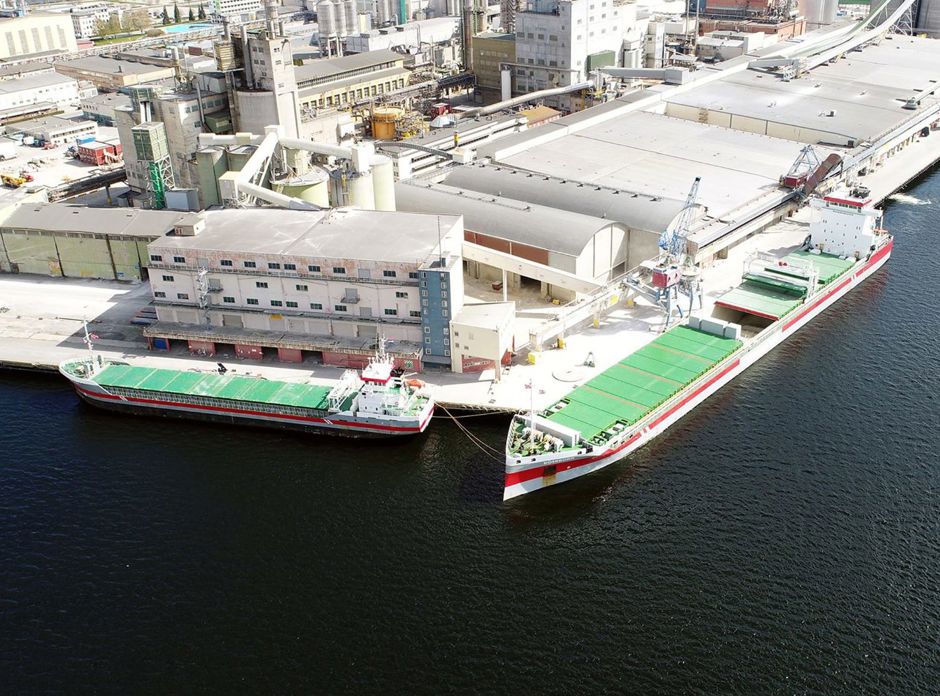Thinking big means checking even the smallest details
Transporting six 312-ton transformers from Veendam to Ter Apelkanaal was not only a logistical masterpiece, but also an exercise in listening, explaining and coordinating. Technical precision incorporating human manageability.
EasyMax 2.0 – Certainty in a changing world of maritime logistics
For logistics managers, whose working day consists of balancing delivery reliability, costs, and sustainability, predictability is key. The global logistics chain is buckling under the pressure of stricter emissions regulations, fluctuating fuel prices, and customer demands for CO₂ reduction. To help in this complex situation, Wagenborg offers a concrete solution: the 'fuel-flex' EasyMax 2.0.
The Nassauborg as a hub in the energy transition
Wagenborg recently used the Nassauborg to transport subsea cables from Greece to the Netherlands. This unique project underscores the collaboration between Wagenborg departments. Paul Bakker of Wagenborg Projects & Logistics discusses the technical challenges and the close working relationships between the various Wagenborg disciplines in this unique field.
Shaping a sustainable future: how ‘Carbon Destroyer 1’ supports Project Greensand
In a world racing to reduce CO₂ emissions, innovative partnerships are redefining what’s possible in maritime logistics and offshore energy. One of the most ambitious examples is Project Greensand, led by INEOS Energy. This pioneering initiative in the Danish North Sea marks Europe’s first full-scale Carbon Capture and Storage (CCS) value chain — from capturing industrial CO₂ to safely storing it beneath the seabed. At the heart of this operation lies a new class of vessel: Carbon Destroyer 1, designed, built and operated by Wagenborg and Royal Niestern Sander. Together, these partners are setting a new benchmark for scalable, reliable and sustainable CO₂ transport by sea.
Metsä Group: "We select the partners we trust"
If you thought the paper industry was going to disappear, think again. Even though the global demand for fine paper has dropped, online shopping drives packaging paper volumes through the roof. We talk with Metsä Group’s Vice President Marine Logistics Jyrki Ranki about growth ambitions, innovations driving sustainability and choosing the right logistic partners.
Kroonborg: a decade of walk-to-work leadership in the offshore industry
Ten years ago, Wagenborg introduced the world’s first walk-to-work (W2W) vessel, Kroonborg, transforming offshore maintenance operations for NAM/Shell UK in the Southern North Sea. As a groundbreaking innovation, Kroonborg set new standards for safe, reliable, and year-round offshore personnel and equipment transfers. Today, Wagenborg proudly maintains its leadership in this niche, operating five W2W vessels that continue to redefine offshore logistics.
The EasyMax ship design: Easy to operate, maximum performance
After months of work on building hull number 850, it’s now time to introduce the “EasyMax”. The EasyMax is an open-top multi-purpose ice-classed vessel with a load capacity of 14,200 tonnes and a hold volume of 625,000 cubic feet. The combination of that large load capacity and very low fuel consumption makes this Wagenborg vessel a leader in its segment in terms of sustainability.
Wagenborg at the basis of the offshore wind farm Borkun Riffgrund II - literally!
Over the past 15 years, Wagenborg has built up an impressive track record in logistics for various offshore wind farms in the German Bight. In doing so, the company is making a significant contribution to the transition to sustainable energy. And in 2018, Wagenborg is once more at the basis of a new offshore wind farm, the Borkum Riffgrund 2 – and this time that means literally! Wagenborg has been contracted by the Jan de Nul Group to transport the foundations for 36 wind turbines. Each foundation consists of a monopile, a transition piece, and an anode case. In addition, Wagenborg also transported a special pile driver and a “noise mitigation system” for installing the foundations.
The sky is the limit - a retrospect on the collaboration with Yara
Our meeting precedes the Operations Team-meeting (OT). We have barely shaken hands before Marc de Rijcke convincingly dives in. About the importance of an open dialogue, his ‘core-owner’-philosophy, the previous love-hate relationship between Yara and Wagenborg, and about trust in each other. Marc de Rijcke, Head of Short Sea Chartering at Yara Maritime Logistics, reviews the long history between Yara and Wagenborg.
A gateway to the east
Kirkenes is ideally suited for observing the Northern Lights. Regardless of this draw, the Norwegian landmark feels like a final destination; end of the line for both roads and ferries. Yet Kirkenes, situated at a mere 10 kilometres from Russia, is known as the ‘gateway to the east’. Renovating the existing E105 targets the facilitation of trade and cooperation between neighbouring countries. Part of this upgrade is the construction of the Bøkfjord bridge; the 120 metre arched steel bridge spanning the Norwegian fjords, connecting Norway and Russia. A complex logistical challenge for Wagenborg to overcome.
From short sea to deep sea shipping
We talk to Koos Zumkehr (director chartering), Coos Blaauw (chartering manager) and Hans Kroon (director Wagenborg Shipping North America) about scale, cooperation and fleet development.
New methods of working at sea
After a tender procedure, Nederlandse Aardolie Maatschappij (NAM) and Shell UK Exploration & Production (Shell UK) have signed a contract with Wagenborg Offshore for the deployment of a second Walk-to-Work vessel. The new vessel will join the Kroonborg, put into service almost three years ago, in maintaining NAM and Shell UK’s unmanned platforms in the southern sector of the North Sea. We talked to Joris Eelman, Maintenance & Ops team leader NUIs, about the second Walk-to-Work vessel and how he sees the future.













